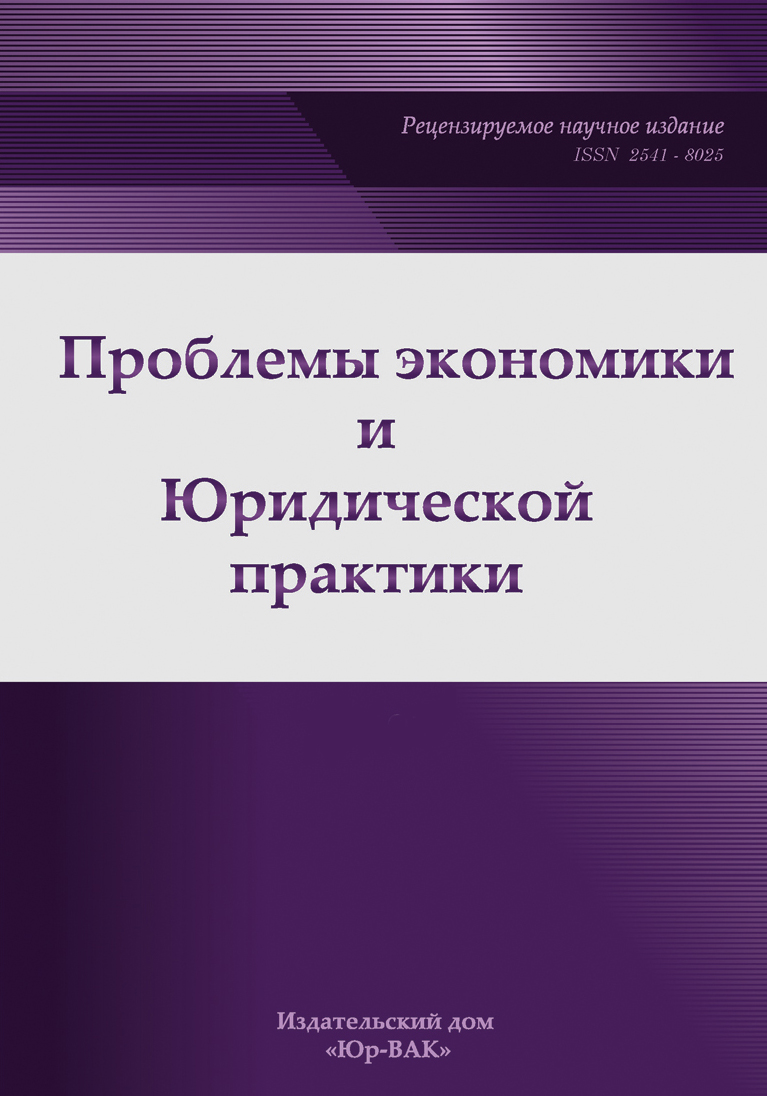Мероприятия Министерства внутренних дел Российской Империи по борьбе с чумой крупного рогатого скота во второй половине XIX века
- Авторы: Лукьянов С.А.1, Тарасова И.А.1
-
Учреждения:
- Московский областной филиал Московского университета МВД России имени В.Я. Кикотя
- Выпуск: Том 18, № 2 (2022)
- Страницы: 26-29
- Раздел: Статьи
- URL: https://journals.eco-vector.com/2541-8025/article/view/531830
- ID: 531830
Цитировать
Полный текст
Аннотация
Целью статьи является изучение особенностей проводимых Министерством внутренних дел Российской империи во второй половине XIX в. мероприятий по борьбе с чумой крупного рогатого скота. В качестве объекта исследования выступают общественные отношения, связанные с предотвращением распространения чумы крупного рогатого скота на территории Российской империи. При этом предметом исследования являются нормативные правовые акты, регулирующие осуществление санитарно-полицейских мер в Российской империи, материалы периодических изданий, архивные документы. В рамках методологии исследования с использованием историко-правового, сравнительно-правового и сравнительно-исторического методов осуществлен анализ деятельности подразделений Министерства внутренних дел Российской империи, связанных с осуществлением мероприятий по борьбе с чумой крупного рогатого скота. На основе ряда источников авторы описывают размеры ущерба, наносимого данным эпизоотическим заболеванием сельскому хозяйству дореволюционной России. Ввиду отсутствия эффективной ветеринарной службы МВД Российской империи было вынуждено пойти на такую санитарно-полицейскую меру, как превентивный убой заболевшего и подозреваемого в заражении крупного рогатого скота. Это встречало сопротивление со стороны населения и сопровождалось использованием ряда других санитарно-полицейских мер. Сделан вывод, что сочетание санитарно-полицейских мер с ветеринарно-санитарными позволило МВД добиться к концу XIX в. определенных успехов по предупреждению распространения чумы крупного рогатого скота в ряде регионов страны.
Полный текст
Об авторах
Сергей Александрович Лукьянов
Московский областной филиал Московского университета МВД России имени В.Я. Кикотя
Email: luk1959@rambler.ru
доктор юридических наук; профессор кафедры государственных и гражданско-правовых дисциплин Российская Федерация
Ирина Анатольевна Тарасова
Московский областной филиал Московского университета МВД России имени В.Я. Кикотя
Email: tarasovairina2@rambler.ru
кандидат юридических наук, доцент; старший преподаватель кафедры государственных и гражданско-правовых дисциплин Российская Федерация
Список литературы
- Андрианов С. А. Министерство внутренних дел: Исторический очерк: (1802-1902). -СПб.: Тип. Министерства внутренних дел, 1901.
- Ветеринария Оренбуржья. История. Факты. Люди. -Оренбург, 2001.
- Извлечение из отчета Министра государственных имуществ за 1856 год. -СПб.: В типографии Министерства государственных имуществ. 1858.
- История ветеринарии России и ее субъектов / под ред. Никитина И. Н. и др. Т.I. -Казань: Изд-во «Фолиант», 2017.
- Минеева Т.И. История ветеринарии: Учебное пособие. -СПб.: Издательство «Лань», 2005.
- О пользе и необходимости введения в России системы убивания зараженных животных, как меры против скотских падежей // Особое прибавление к № 96 «Правительственный Вестник». -СПб., 1870.
- Полное собрание законов Российской империи (ПСЗРИ). Собр. 2. Т. ХХХХХIV. Ч.1. № 59739.
- Ризванова Т. Р. Губернские власти и органы местного самоуправления Южного Урала в борьбе с эпидемиями и эпизоотиями в конце ХIX-начале ХХ вв.: дис. … канд. истор. наук. -Уфа: Башкирский гос. университет, 2011.
- Российский государственный исторический архив (РГИА). Ф. 1302. Оп.1. Д.132; Оп. 3. Д. 494; Оп. 11. Д. 404.
- Сборник узаконений, циркуляров и других правительственных распоряжений, касающихся ветеринарной части Министерства Внутренних дел. -СПб.: Тип. Тренке и Фюсно., 1900.
- Сукеннинг С. П. Краткий отчет о чумной эпизоотии в Мензелинском уезде Уфимской губернии за период с 1875 по 1885 год. -Казань, 1886.
Дополнительные файлы









